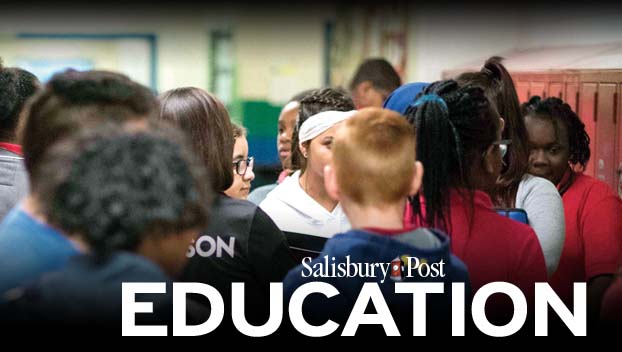Publicly funded pre-K more complicated, challenging for providers, parents
Published 11:17 am Friday, September 4, 2020
By Carl Blankenship
carl.blankenship@salisburypost.com
SALISBURY — Enrolling in state-funded pre-K could already be confusing, and COVID-19 is creating more challenges for providers placing families in the right program.
N.C. Pre-K is a program paid for by the state and which places students in licensed facilities. In Rowan County, there are seats in Rowan County available through Rowan-Salisbury School, Kannapolis City Schools and a number of private locations which also offers the program, which is intended for four-year-olds to prepare them for entering kindergarten.
This year is different. Normally, students would attend facilities five days a week and some would just follow the RSS schedule. This year, pre-K providers are having to adjust to COVID-19 and the guidance passed down by the state at the beginning of August.
There are three ways pre-K is being offered: virtual, hybrid and all-online. But not every location is providing each option. Some are providing a combination of delivery methods as well as online or in-person only.
RSS is following a hybrid model per the schedule for its K-12 students, but others are not. Some programs have not begun classes, either.
Hybrid and online programs can be more challenging for families than virtual school for older students. Laura Villegas, director of programs for Smart Start Rowan, said the curriculum for preschoolers requires an adult to guide and engage with students.
Smart Start manages all the N.C. Pre-K seats in the county and has been grappling with filling seats and accommodating the needs of families. Registration was open and technically closed before the state issued any Pre-K guidance, but the nonprofit is still taking applications for its available seats.
“It’s not normal to have this many open,” Villegas said. “Normally I may have a few here and there.”
Villegas said it’s good that there are options for families and that sites are able to open, but both are creating delays and challenges organizing the program. The organization is still waiting on some resources from the state even though school has started.
When K-12 instructions were passed down from the state in July, Villegas said, families began contacting them about what would happen to pre-K programs, but the nonprofit did not have answers. And the patchwork of operating plans is making things untenable for some families. Villegas gave the example of families who have school-age children starting the week of Aug. 17 and also have a child entering preschool. They want their children to be on the same schedule, but that’s not always possible.
Villegas has been following up with families after they request to drop out to see if they can be accommodated. There have been only a few cases of a family wanting to drop out of the program entirely. Villegas said she has only encountered one family who had an issue with a mask requirement.
Villegas state’s requirements for pre-K are not as strict as public schools. It has relaxed standards for masks and social distancing among young students because of different behavioral expectations. Young children are thought to be the lowest risk category for COVID-19 and less likely to spread it or become seriously infected.
Partners in Learning is a local nonprofit that provides childcare, pre-K and other services for families. It has a combination of private and public pre-K seats, and will begin classes next Tuesday.
Partners in Learning would normally follow the RSS schedule, but the pre-K-specific guidance was passed down by the state weeks after its K-12 instructions, and the nonprofit will be teaching pre-K to all students in person five days a week.
Partners in Learning Executive Director Norma Honeycutt said the organization will stagger its start beginning on Sept. 8 and only bring in half of the students at once for the first couple days as an adjustment period. The organization was already following stringent guidelines for childcare facilities, including not mixing groups of students and not allowing parents in classrooms.
Honeycutt said the nonprofit cut its after school program, a major source of revenue, because it does not want to mix groups of students. Honeycutt said the cut to the program is a financial challenge, but it has received some grant funding to help.
Honeycutt said the biggest challenge is forgoing in-home visits with pre-K families, instead opting for virtual meetings.
“Teachers go into the children’s homes, meet the parents, go over everything, meet the child, get to see where the child lives, all of that,” Honeycutt. “And we have not been able to do that.”
The challenge then, Honeycutt said, is how the organization can bring parents into their child’s education. The parents can visit outside, but they can not see the child’s classroom. Honeycutt said it is just not the same.
“You necessarily lose building a relationship, but it’s much more difficult,” Honeycutt said. “It’s harder to build a relationship virtually, especially when you’re talking about four-year-olds. This is most of these children’s first time away from home, so you have to build that trust.”
The nonprofit also recently acquired transparent masks which will allow students to see the faces of teachers. Honeycutt said this is important for young children to see expressions, and for those who are learning English to see the movements as a teacher pronounces words.






